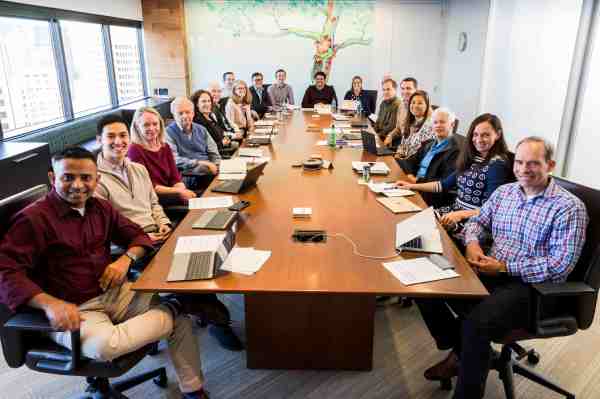Madrona Venture Group typically flies under the radar of Silicon Valley reporters, partly because it’s in Seattle. But the 23-year-old, early-stage venture firm has been having a pretty good run of late — success it just used to close its seventh fund with $300 million, the same amount it raised for its sixth fund in 2015.
Among its investors: Bezos Expeditions, Vulcan Capital, and billionaire John Stanton, who is the chairman of the board of Trilogy International Partners (as well as the majority owner of the Major League Baseball team the Seattle Mariners).
Madrona’s momentum didn’t build overnight. Four Madrona portfolio companies that have IPO’d over the last 20 months — the cloud software companies Smartsheet and Apptio, the real estate site Redfin, and the RFID chip maker Impinj — took on average 12 years to get into the hands of public market investors.
Madrona, the firm is quick to note, was there from the start, writing seed and Series A checks that today range from $200,000 to upwards of $7 million. (The firm has, on rare occasion, invested up to$30 million in a single company over the life of its investment.)
Those four now-public companies share another trait in common; they’re all based in the Pacific Northwest, which includes greater Seattle but also cities like Portland, Ore.; Vancouver, British Columbia; and Spokane, Wa.
That’s no accident. About 90 percent of Madrona’s deals are local, where the startup scene has seemingly expanded dramatically in recent years. In addition to Madrona and other local venture shops, Google, Facebook, Alibaba and Snowflake Computing have each opened engineering offices. Meanwhile, the University of Washington Computer Science Department is finishing another major building to expand its ability to graduate more CSE students. (A $40 million gift from Paul Allen, who cofounded Microsoft before establishing Vulcan Capital, helped toward that end. In fact, the department has since been renamed the Allen School.)
Asked how fundraising went this time around, Madrona’s team describes it as smooth, crediting those IPOs as well as investors’ greater appreciation that two of the four largest companies in the world — Amazon and Microsoft — are based in its backyard.
As for how many startups the firm will look to back with its new fund, it suggests the number will be around 40, which is how many startups it backed from its fourth fund.
One of those earlier startups is Pulse Labs, a Seattle-based startup that helps brands understand how real people interact with their voice apps and raised $2.5 million in January, led by Madrona. Another is XNOR, a two-year-old, Seattle-based artificial intelligence startup that announced $12 million in Series A funding just last week led by Madrona. We wrote about it here.
Generally speaking, it tells us, when Madrona invests, it’s looking to either leverage its growing expertise in cloud computing and machine learning, or it’s looking to capitalize its relationships with previous Madrona entrepreneurs and partners. Given how many years it has been in business at this point, that’s now a sizable circle.
